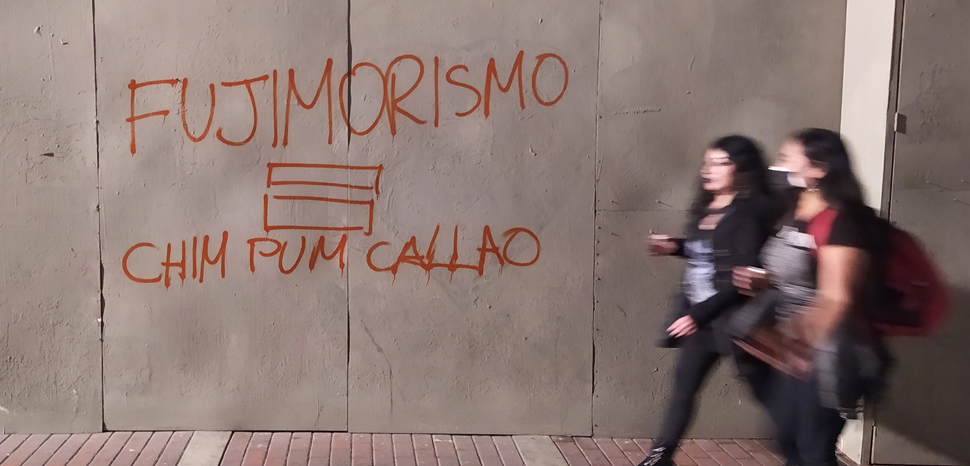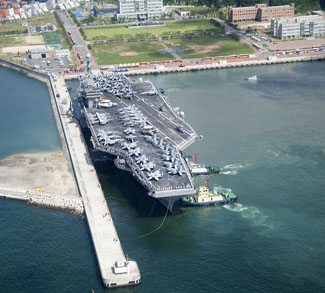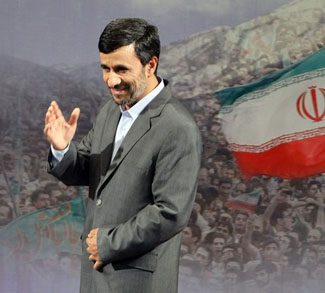The presidential election of Pedro Castillo and the start of his government two weeks ago has unleashed a contest that will define Peru as a nation in the coming decades. This dispute has existential importance as it confronts two radically different visions of Peru, each one supported by half of the electorate during an election surrounded by serious questions on its legitimacy.
If war is the continuation of politics by other means, politics has much to do with war and its art. The current contest for power in Peru, although not yet a declared war, can turn into an open social confrontation with dire consequences. Admitting this possibility does not mean having a bold and irresponsible perception of reality, much less a desire to worsen Peru’s flimsy social architecture.
Human condition being what it is, the science of war has been studied since ancient times. Sun-Tzu’s Art of War is an enduring example of the philosophy of war that receives recurring attention not only in military academies but even in the business world. For its versatility and timelessness, it deserves to be remembered in the context of the current political struggle in Peru.
Sun-Tzu begins his short treatise written in the sixth century B.C. by listing five fundamental factors that determine the art of war: moral influence, climate, terrain, command, and discipline. In the current Peruvian political sphere, these factors acquire a very peculiar tonality.
Moral influence has several banners, including, on the side of the Castillo government, the struggle for a new country with a socialist imprint and a new constitutional order and, on the part of the opposition, the defense of democracy, economic freedom and transparency about an electoral result questioned by many. The climate is the initial moment of a precarious government with weak alliances trying to consolidate itself with a radical political scaffolding in the face of a diffuse opposition. The terrain is fundamentally Peru, with its vast historical, social, and geographical complexities synthesized at the moment in the power struggle between the executive and the legislature, but with dangerous international connotations that may involve China, Venezuela, and Cuba, facing a possible resistance led by the United States. Command is in the hands of a small radical group with classical Marxist-Leninist convictions, while the opposition is not unified and manifests itself diffusely through the leadership of various political forces. Discipline is properly the structure and logistics of the political forces that lead the confrontation, with an executive power quickly organizing itself against a still confused and weak opposition.
Whoever occupies the battlefield first waits comfortably for his enemy, used to say Sun-Tzu. It is tempting not to agree with this statement given the Peruvian government’s greater capacity for execution by the means at its disposal. But while the executive branch is powerful, the Congress has the formal force given by its oversight and legislative attributions given by the constitution.
It is a basic principle of Sun-Tzu’s theory that all war is based on deception, but in the Peruvian case this thesis is restricted by the Marxist-Leninist ideological base of the government that conditions and defines its action. The government’s political determinism is a double-edged sword that gives purpose and energy but also makes its methods transparent and therefore can allow an effective defense against its ultimate intentions of full control. The clarity of the political objectives of the group in power should allow the opposition to define its strategy.
The importance of surprising speed and opportunism as methods of struggle have been recognized by the government in its early days in power, especially through changes in the military hierarchy, the appointment of a cabinet revealing an attempt to sharpen the political confrontation and in initial efforts to create an internal control system as alternative to the national police through peasant patrols (“rondas campesinas”). The “divine speed” appreciated by ancient Chinese strategists seems to be understood by Castillo and his political base.
On the side of the opposition, there is no discerning strategy beyond routinely upholding constitutional mechanisms regarding the balance of powers. In military terms, a vision of defensive warfare predominates in the opposition, reacting only to the manoeuvres and actions of the adversary, which confirms the observation that pure defense only makes sense when force is inadequate. Nothing is more difficult than the art of maneuvering, also says Sun-Tzu, and this is proven by an opposition tangled up in their tactics regarding where, when and how to confront the actions of the executive, including what to do in the face of the appointment of a mostly politicized and radical cabinet.
Victory is the main objective of war, but the meaning of political victory is different for both sides. For Castillo and his acolytes, victory means permanent consolidation in power that would allow them to carry out their supposed goals of social equality. For the opposition, the vision of victory is diffuse and fluctuates between a desire to slow down the work of the government – thus facilitating an orderly political transition at the end of its term in five years – and a presidential vacancy that would allow new general elections in the short term. As Sun-Tzu says, the one who is confused in his purposes cannot answer the rival.
It is of paramount importance in warfare to attack the enemy’s strategy, and the immediate step in the case of Peru would be to destroy the alliances that support the executive power. Splitting the opponent when united appears to be one of the few tactics the opposition is using more effectively as it has exposed the contradictions between the ruling political party, its allies and supporters, especially regarding controversial ministerial appointments. But if plans cannot be nipped in the bud or alliances interrupted, the Chinese philosopher recommends sharpening weapons to win victory, which can only mean attempting the presidential vacancy.
He will be victorious whose ranks are united in purpose. This prognosis should be listened to by a democratic opposition that still does not seem to understand who the enemy is and what its objectives are. Nor is it clear what the opposition is trying to defend: democracy, the economic model, or both. In any case, the fight for false idols such as restoring Peru’s international reputation should be avoided. Sun-Tzu also said that no evil is greater than the sovereign’s military orders, precisely because of his remoteness from the field and lack of knowledge of the local reality, an adequate observation for those who seek the leadership of the opposition in international organizations or forums, or in prestigious characters more interested in preserving their fame. One who is eager to defend his reputation pays no attention to anything else, says Sun-Tzu wisely.
Experts in warfare must know where and when a battle will be fought, and for this it is essential to know one’s own forces and those of the contender. In political contests, public opinion is the most important provision in the arsenal and moral influence must materialize in public opinion. In the case of the Castillo government, the latest polls showing his party’s declining approval ratings are good indicators of its true political strength.
Victory can be created, but for this it is necessary to define the political objectives of the struggle, create a minimum political consensus to act with unity of command and use the vast resources of resistance, especially in public opinion and civil action.
The views expressed in this article are those of the authors alone and do not necessarily reflect those of Geopoliticalmonitor.com




